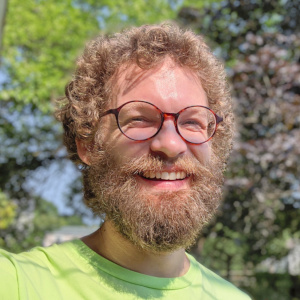Our mission: Solve your location challenges
In 2016, Ian and Luke were working on a project for a client with high standards—beautiful map design, incredibly fast loading times, and easy setup, all within a budget that made sense for a small, innovating business.
Sound familiar?
Existing mapping solutions simply couldn't deliver. They were either too expensive or lacked the performance and customization required. So, we decided to build a solution that met our client's needs and raised the bar for what a mapping platform could offer.
Beautiful maps that enhance your brand
The first challenge we tackled was map styling. We knew that cluttered or unattractive maps could detract from your valuable data. That's why we created our first custom style, Alidade Smooth—a clean, elegant basemap designed to help your information shine.
Learn More about our custom cartography on our Map Styles page.Fast and reliable access, worldwide—so your users stay engaged
In today's world, speed and reliability are crucial. Delivering hundreds of terabytes of data quickly across the globe is complex, but we were determined to get it right. We’re built on the great work of open-source mapping projects, meticulously analyzing and optimizing every layer of the stack. We engineered improvements to our data pipeline and API delivery infrastructure. This first-principles reimagination of location APIs ensures that millions of map tiles are rendered from billions of data points and delivered to your users in the blink of an eye—no matter where they are.
Learn More about our infrastructure.Powerful APIs to enhance location experiences
At Stadia Maps, we're more than just a technology provider—we're a team of passionate individuals dedicated to helping you succeed. We're constantly developing location APIs to make it easier for your development teams to build efficient, immersive location-based experiences. We focus on providing the necessary tools to bring your vision to life.
Learn More about our APIs in our documentation.Meet the Team
Stadia Maps: Built by humans, empowering your success
Successful teams understand their core value, and, at Stadia Maps, our deep appreciation for location powers our business and yours. Though our team spans three continents, this global perspective uniquely equips us to provide seamless and effective location data solutions for your users, wherever they are.


